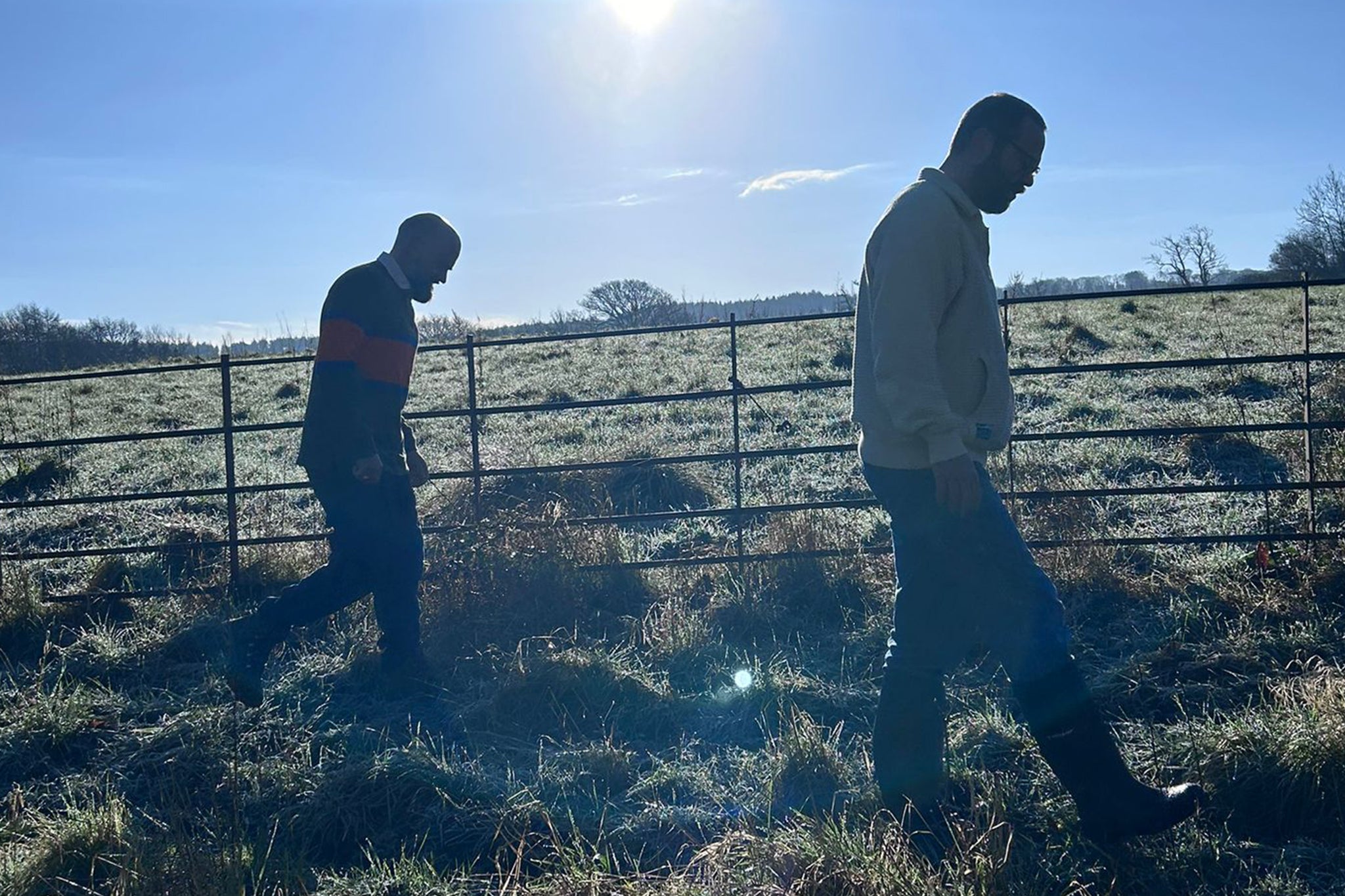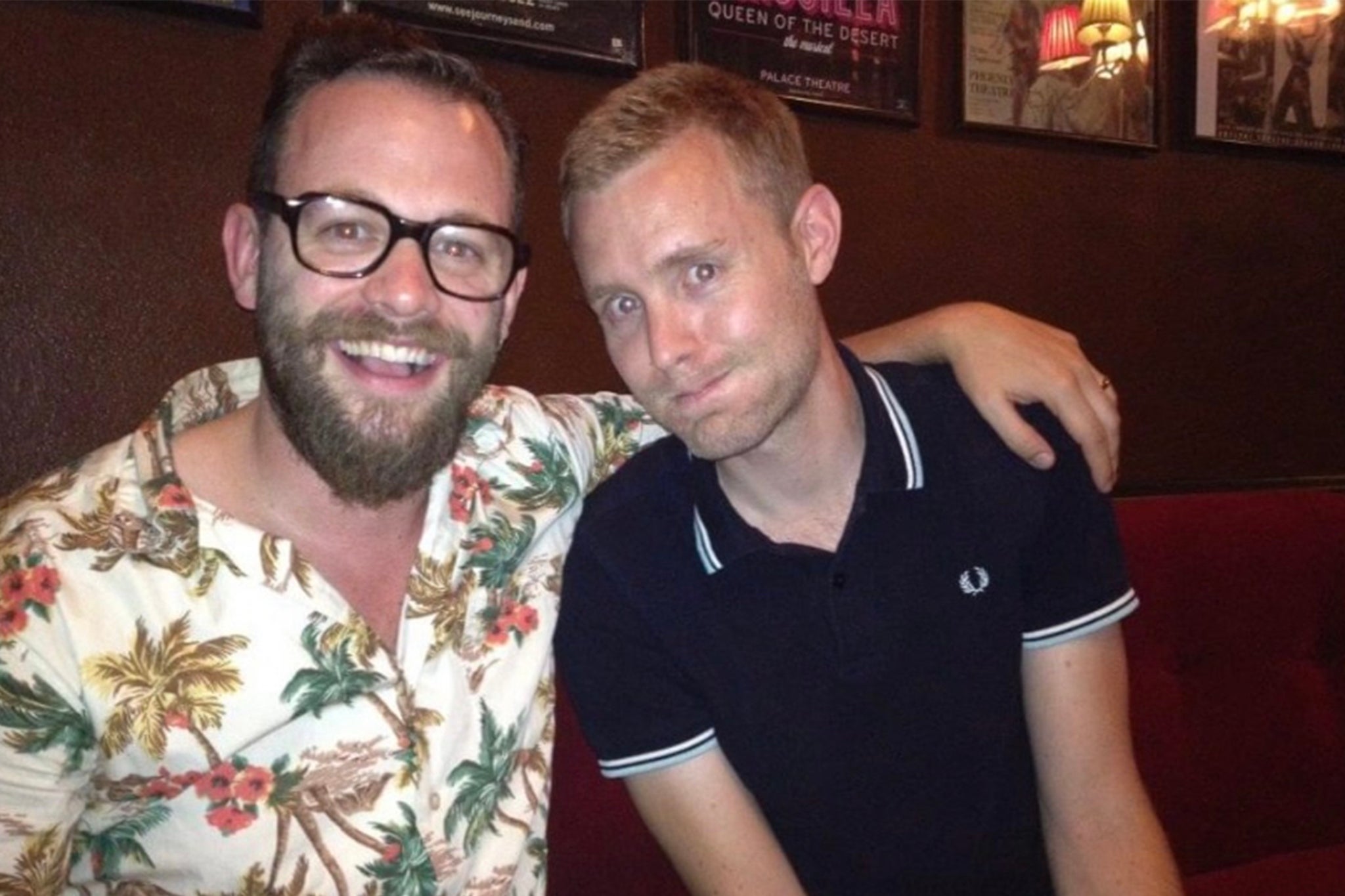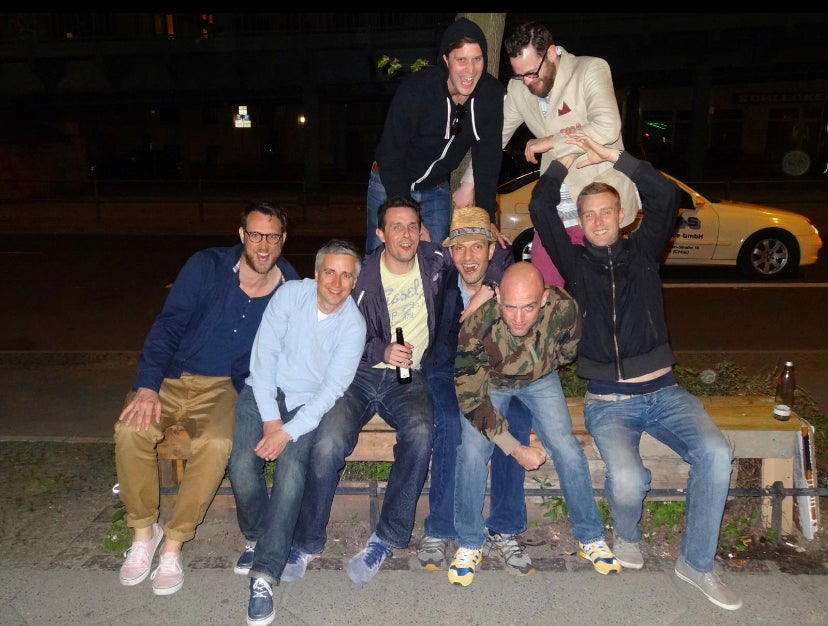Men are getting lonelier – is it time to change the way we do ‘friendship’?
Like many fortysomethings, Josh Burt has a tight group of male friends who meet regularly at the pub. When one of their group took his life, it was a shock to them all, prompting them to rethink the relationship men have with their mates and how it can be better...

Just over two years ago, my good mate Rich, an integral part of my friendship group, took his own life. We’d known each other since we were teenagers at university enjoying our first forays away from home, and while I knew he was depressed on the back of losing his job, it still came as a shock.
Since his death, I have thought about it a lot, and I do wonder whether his willingness to talk about what he was going through was sometimes scuppered by the ridiculous constraints men like us put on ourselves.
I’m not saying it would have saved him (that would be far too full of assumptions that I can’t remotely back up), but it’s standard for fortysomething blokes to slip into knee-jerk banter just as conversations are getting too deep or interesting, or to search for silver linings to make sadness somehow more palatable – and less awkward.
I was certainly guilty of this with my friend, probably for my own benefit rather than his.
In hindsight, I really wish I hadn’t done any of that. I wish I’d had the courage to lean in and ask the uncomfortable questions and sit in the awkwardness, because, when you look at the statistics, we need to get better at this stuff.
A few weeks ago, a study by Arizona State University (as published in American Psychologist) revealed an epidemic of middle-aged loneliness in the UK – with British men being some of the loneliest in the world.
No coincidence perhaps, in that case, that the biggest cause of death for UK males under the age of 50 is suicide, and that men are three times more likely to die by suicide than women. There’s a pretty clanging message there.
“Can guys talk about something that’s really important to them?” ponders Fredric Rabinowitz, a psychology professor and the author of Deepening Group Psychotherapy with Men: Stories and Insights for the Journey. “Well, yes, but first they need permission, they need to normalise it, to acknowledge that everyone’s feeling stuff and that’s OK.
“But there’s also this fear factor built into a lot of male relationships, where being real with another guy is somehow taboo – so it blocks that communication, even if you’re already good friends.”
This rings very true – this sense of pointless stoicism that’s permeated notions of “masculinity” for years is everywhere.
How damaging has it been in how we relate to each other and ourselves – especially when our shortcomings seem to be highlighted by the “success” of our peers? If that’s really the lifestyle we buy into, it’s unsurprising that so many men are retreating into their shells (I was going to say caves, but that’s the wrong connotation here).

Could it be that men are failing each other by not creating environments where we can be comfortable with how we really are? Could a new way of socialising with our friends change the way we are with each other?
I’m keen to test out the idea, but unsure how – which is why, when 42 Acres, a “regenerative estate, nature reserve and wellbeing retreat centre” in rural Somerset, gets in touch about trying out a “self-guided retreat”, I’m intrigued.
Could this be exactly what me and my mates need to become friends in the truest sense?
Going natural
The 42 Acres site is made up of wild meadows, rolling fields and woodland, and describes itself as “a sanctuary for all life” whose founders seek to “leave everything they touch in better shape than they found it”.
Sounds like it could be just the tonic for my trio of pals – Sam, Matt and Olly, literally my three best men when I got married over a decade ago.
There’s also this fear factor built into a lot of male relationships, where being real with another guy is taboo – so it blocks that communication, even if you’re already friends
Normally, we’d meet up in a grotty boozer, so “quiet luxury” accommodation in rural Somerset for a whole weekend is quite the departure. Especially as this is a place with wellbeing at the top of the agenda, and not a hangover.
We are free to roam the 173 acres of flora and fauna as we wish, go wild swimming, or simply lie back and stare up at the stars if we want to. But can our friendship handle a whole weekend away from the comfort zone of pints and the pub?
“If you’re out in nature, perhaps the beauty will move you in a way that wouldn’t happen elsewhere,” suggests Dr Andrew P Smiler, author of Is Masculinity Toxic? A Primer for the 21st Century. “As you don’t have a script for how to hang out in that setting, it may spark new kinds of conversations.”
Resisting old habits
We arrive just in time for the first meal of the weekend – a communal feast from the “soil-to-gut menu”, made from vegetables grown and foraged on the land. And as we sit at a large shared table, Dr Smiler’s words about new settings and new conversations are already starting to feel prophetic.

We’re part of a bigger, mixed group of men and women, so we’re having to engage with other people straight away, operating outside our usual circle.
It serves as a reminder of what drew me to my friends in the first place. They’re being funny and charming, showing real interest in what other people are saying. With our best faces on, we’re even being kinder to each other. More patient.
“Context matters,” Dr Smiler tells me. “If it’s a setting you’ve not been in before, at least not as a group, you can’t fall into old habits.”
Certainly, it feels like without the pantomime of the pub, we’re showing other sides of our personalities, and I experience a fresh perspective from my friends. I even feel a glow of pride for them. They’re representing us well.
Getting emotional
Over the course of the weekend, we enjoy all that’s on offer – namely “a daily programme of wellbeing and nature-based experiences”. Naturally, this is initially met with some gentle ribbing, but in reality, the novelty of doing things we’ve never tried before, like early-morning yoga sessions and swims in the lake, brings us closer together.
However, the most enlightening part of the weekend arrives just as we’re heading out for a guided exploration of the grounds.
“We believe it’s not enough to just live a low-impact life or a life geared towards sustainability,” says Tasha Stevens-Vallecillo, our guide and the founder of Land, Food and Medicine, which is based at 42 Acres. “In order to reduce harm to others, we have to show up and do our inner work as well.”
Before we set off, Tasha invites us to first close our eyes and spend a few minutes in quiet contemplation, and then to share how we’re feeling with the rest of the group. At which point my friend Olly starts to cry.

He explains that he’s feeling emotional and a little overawed, and truthfully, it’s totally befitting the moment. What’s really interesting is that we’re not remotely freaked out by it, and we don’t dilute his vulnerability with banter. We just put a supportive arm around him.
“We traditionally shame guys for crying, and tell them they’re not supposed to, so for the most part we hold back the tears,” says Rabinowitz later when I recount what happened. “But it sounds like in that setting all the defences were down and it came spontaneously.
“What’s important is that afterwards, he doesn’t feel any shame about that, because otherwise it deflects the benefit of just releasing that emotion.”
Was it worth it?
By the end of the weekend, we’re all in a good place. We’re relaxed and clear-headed, and the change of environment has been as refreshing for us all as I’d hoped.
We’ve yoga’d, meditated, swum, sauna’d... we’ve shamelessly paraded our dad bods about the place. But by doing new things in a different environment, we’ve had more meaningful conversations in a couple of days than we’ve had for years.

This trip also gave us a chance to build new memories. It’s easy to hide or to feel alone in a busy pub, but when you’re out in nature, you can’t help but be in the moment of a shared experience, whether you like it or not.
With our strong bond of friendship “even more cemented” (the words of my friend Olly), we’re all feeling buoyed, so vow to continue checking in with deeper conversations when we’re back in the “real world”.
“Men want to feel important and they want to feel their power,” says Rabinowitz. “That’s a part of us, but it’s not all of us – you can be both a strong man and a sensitive man.”
Amen to that.
Find out more about 42 Acres here
Self Guided Retreats start at £137 pp/pn and include accommodation, food and experiences
If you are experiencing feelings of distress, or are struggling to cope, you can speak to the Samaritans, in confidence, on 116 123 (UK and ROI), email jo@samaritans.org, or visit the Samaritans website to find details of your nearest branch.
If you are based in the USA, and you or someone you know needs mental health assistance right now, call the National Suicide Prevention Helpline on 1-800-273-TALK (8255). This is a free, confidential crisis hotline that is available to everyone 24 hours a day, seven days a week.
If you are in another country, you can go to www.befrienders.org to find a helpline near you.
Join our commenting forum
Join thought-provoking conversations, follow other Independent readers and see their replies
Comments


Bookmark popover
Removed from bookmarks